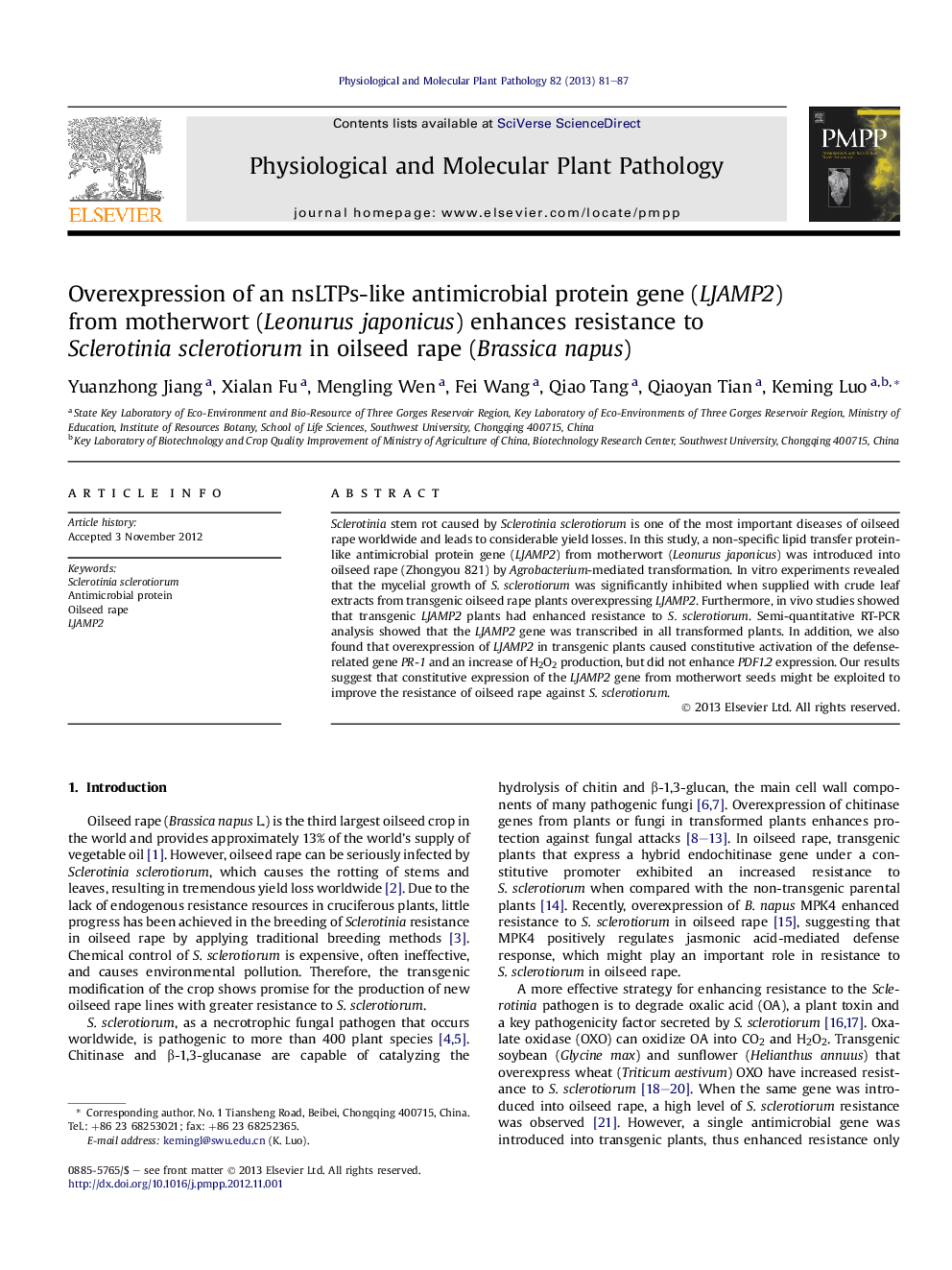| Article ID | Journal | Published Year | Pages | File Type |
|---|---|---|---|---|
| 2836413 | Physiological and Molecular Plant Pathology | 2013 | 7 Pages |
Sclerotinia stem rot caused by Sclerotinia sclerotiorum is one of the most important diseases of oilseed rape worldwide and leads to considerable yield losses. In this study, a non-specific lipid transfer protein-like antimicrobial protein gene (LJAMP2) from motherwort (Leonurus japonicus) was introduced into oilseed rape (Zhongyou 821) by Agrobacterium-mediated transformation. In vitro experiments revealed that the mycelial growth of S. sclerotiorum was significantly inhibited when supplied with crude leaf extracts from transgenic oilseed rape plants overexpressing LJAMP2. Furthermore, in vivo studies showed that transgenic LJAMP2 plants had enhanced resistance to S. sclerotiorum. Semi-quantitative RT-PCR analysis showed that the LJAMP2 gene was transcribed in all transformed plants. In addition, we also found that overexpression of LJAMP2 in transgenic plants caused constitutive activation of the defense-related gene PR-1 and an increase of H2O2 production, but did not enhance PDF1.2 expression. Our results suggest that constitutive expression of the LJAMP2 gene from motherwort seeds might be exploited to improve the resistance of oilseed rape against S. sclerotiorum.
► A motherwort gene LJAMP2 was introduced into oilseed rape by transformation. ► Transgenic LJAMP2 plants had enhanced resistance to Sclerotinia sclerotiorum. ► LJAMP2 overexpression in oilseed rape caused PR-1 activation and H2O2 accumulation.
